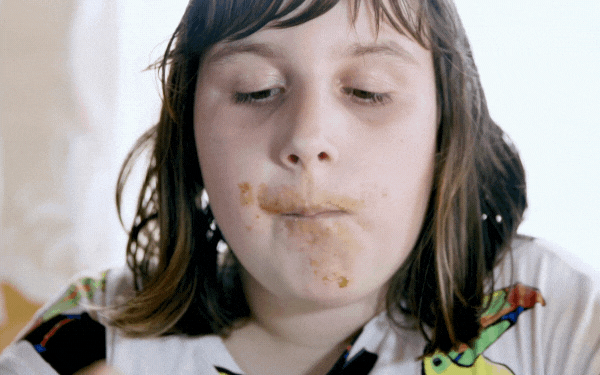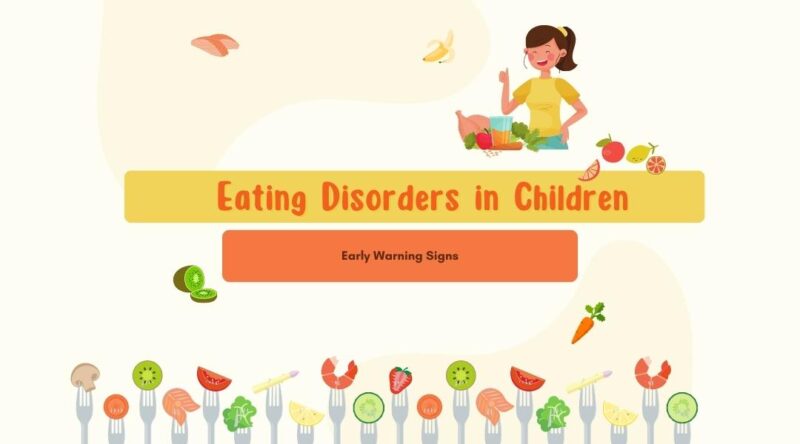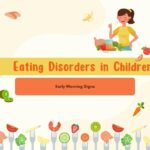We often associate childhood with carefree days of play, learning, and exploration. However, the increasing prevalence of eating disorders in children shatters this image, revealing a stark reality that needs our immediate attention. Eating disorders, previously thought to be primarily an adolescent or adult issue, are now being recognized and diagnosed in children as young as six or seven.
This blog post aims to provide comprehensive information about eating disorders in children and highlight the early warning signs. It’s crucial for parents, teachers, and caregivers to be informed because early detection and intervention can make a substantial difference in a child’s recovery.
What You Need to Know About Eating Disorders

Eating disorders are severe mental health conditions characterized by unhealthy eating habits, such as extreme food restriction, overeating, or distress about body weight or shape. The most commonly recognized eating disorders include Anorexia Nervosa, Bulimia Nervosa, and Binge Eating Disorder.
- Anorexia Nervosa: This disorder is marked by a distorted body image, leading to self-imposed starvation and excessive weight loss.
- Bulimia Nervosa: Bulimia is characterized by cycles of binge eating followed by inappropriate methods of weight control, like vomiting, fasting, excessive exercise, or misuse of laxatives.
- Binge Eating Disorder: This disorder involves recurrent episodes of eating large quantities of food, often very quickly and to the point of discomfort.
Eating disorders are not lifestyle choices or phases; they are serious, potentially life-threatening conditions that affect a child’s physical and emotional health.
Early Warning Signs of Eating Disorders in Children

Knowing what to look for can help identify an eating disorder early. Here are some signs and symptoms that may indicate a problem:
Behavioral Changes
Children with eating disorders may exhibit behavioral changes like obsessing over calories, fat content, and nutrition. They might also engage in secretive eating, eat very slowly, or develop rigid eating rituals.
Physical Changes
Sudden or rapid weight loss or gain, fatigue, dizziness, fainting, or complaints about feeling cold all the time can signal an eating disorder. In girls, irregular periods or cessation of menstruation can also be a sign.

Emotional Changes
Look out for extreme mood swings, increased anxiety around mealtimes, withdrawal from friends or activities, and a preoccupation with body size and shape.
Frequent Dieting
While dieting itself isn’t inherently harmful, children expressing consistent dissatisfaction with their bodies and persistently dieting can be a warning sign.
Excessive Exercise
While being physically active is beneficial, compulsive exercising, especially in combination with other warning signs, can be a cause for concern.
Remember, these signs alone do not confirm an eating disorder. They are indicators that there could be a problem, and a healthcare professional should be consulted for a thorough evaluation.
The Impact of Eating Disorders
Eating disorders can have severe, long-term health consequences. They can stunt growth, cause heart and kidney problems, lead to bone loss, and interfere with normal brain development. Apart from physical effects, they also have significant psychological impacts, leading to anxiety, depression, and even suicidal thoughts or behaviors.
Moreover, eating disorders can severely affect a child’s social life and academic performance, leading to isolation and difficulty concentrating.
Taking Action: What You Can Do

If you suspect a child is struggling with an eating disorder, here’s what you can do:
- Open Communication: Start a conversation about their eating behaviors and express your concerns in a supportive, non-confrontational manner.
- Seek Professional Help: Consult a pediatrician, psychologist, or mental health professional specializing in eating disorders. They can provide a proper diagnosis and guide you on the treatment options.
- Educate Yourself: Learn as much as you can about eating disorders. The more you understand these conditions, the better you can help your child navigate this challenging journey.
- Encourage Healthy Eating Habits: Model and encourage balanced eating habits and physical activity. Avoid labeling foods as ‘good’ or ‘bad’, as it can contribute to an unhealthy relationship with food.
- Foster a Positive Body Image: Promote a positive body image and self-esteem in your child. Avoid making comments about your child’s weight or appearance, and emphasize the importance of inner qualities over physical attributes.
- Provide Emotional Support: Let your child know that it’s okay to express their feelings, and they can always turn to you for support. Encourage them to communicate openly about their fears, anxieties, and concerns.
Eating Disorder Treatment
Treatment for eating disorders is tailored to each child’s individual needs. It often involves a combination of nutritional counseling, psychotherapy (such as Cognitive Behavioral Therapy or Family-Based Therapy), and sometimes medication.
Nutritional counseling helps restore healthy eating patterns and weight, while psychotherapy addresses the underlying emotional and cognitive issues. Family-Based Therapy is particularly effective for children and adolescents, as it actively involves the family in the child’s recovery.
The Road to Recovery
Recovery from an eating disorder is entirely possible, but it’s important to remember that it’s a journey requiring patience and perseverance. Early intervention improves the chances of full recovery, hence the importance of recognizing the warning signs.
While the child is the one directly affected, eating disorders also impact the entire family. It’s essential for family members to seek support for themselves too. Numerous support groups and resources are available to help families cope with the challenges of eating disorders.
Eating disorders in children are a serious issue that demands our attention. By staying vigilant to the early warning signs and intervening promptly, we can help our children embark on the road to recovery and regain their health and happiness.
Final Words
Eating disorders in children can be terrifying for both the child and their family. However, with early recognition, professional help, and a supportive environment, children can overcome these challenging disorders and thrive. The key lies in awareness and understanding—by recognizing the signs early and responding with compassion and support, we can make a profound difference in a child’s life.
Remember, the goal isn’t just about restoring healthy eating behaviors—it’s about helping children build a healthy relationship with food, their bodies, and themselves. Let’s join hands in this vital mission and ensure our children grow up in a world where they feel valued, confident, and empowered, irrespective of their size or shape.
If you or someone you know is struggling with an eating disorder, it’s important to seek help from a healthcare professional. You’re not alone, and there are resources and support available to help you on your journey to recovery.


